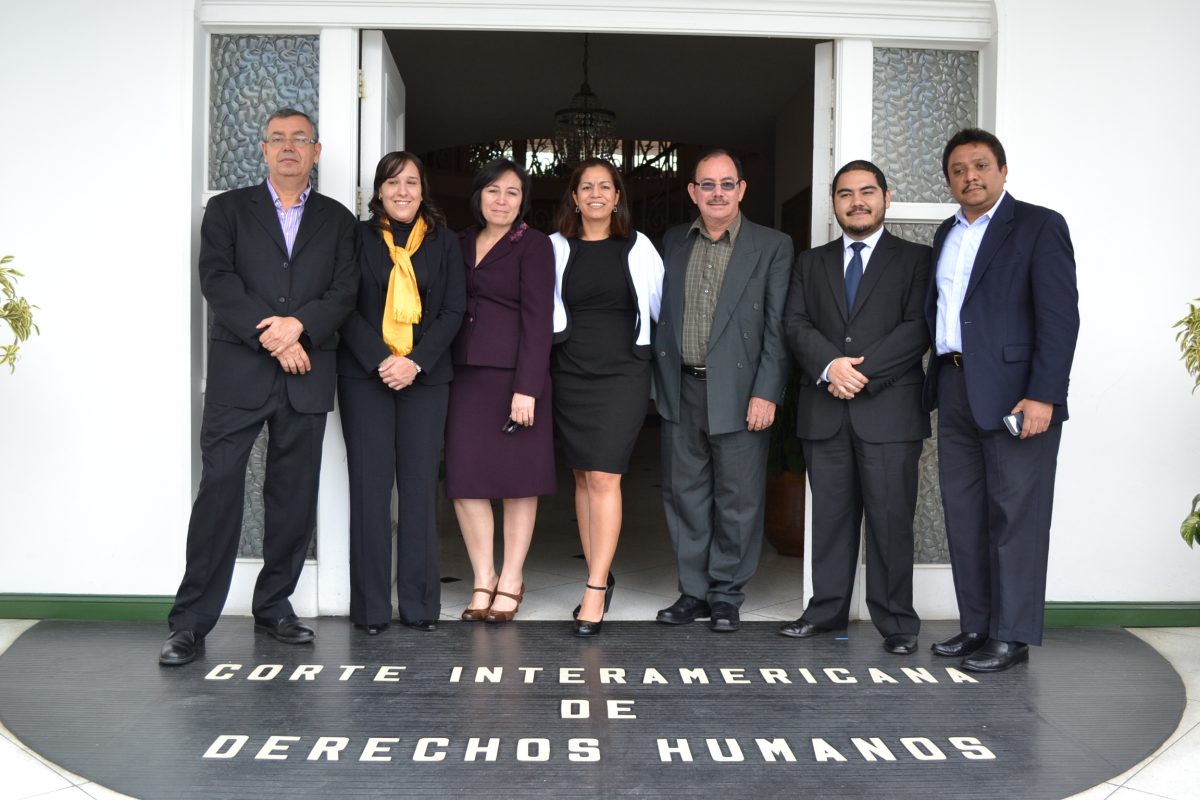






San José and Tegucigalpa, February 3rd, 2015.- The Association of Judges for Democracy (AJD) and the Center for Justice and International Law (CEJIL) called on the Honduran State to adopt measures to guarantee judicial independence and ensure the right to equal access to justice for the country´s citizens during the hearing of the López Lone and others vs. Honduras case before the Inter American Court of Human Rights (Inter-American Court) today.
The hearing began on Monday February 2nd and concluded on Tuesday, February 3rd. The case had to do with the arbitrary and illegal dismissal of four judges during the 2009 Honduran coup.
On Monday, Guillermo López Lone one of the victims of the case, pointed to the arbitrary dismissals he and fellow judges Luis Chévez de la Rocha, Ramón Barrios, and Tirza Flores were subjected to after the coup.
In the afternoon, the Inter-American Court heard assessments from three experts. Among them, lawyer and former advisor to the United Nations in Honduras Antonio Maldonado who spoke about the context of human rights restrictions that unfolded in the wake of the coup, the role played by authorities across different state institutions responsible for safeguarding human rights during such an event.
Former UN Special Rapporteur on the Independence of Judges and Lawyers Leandro Despouy and Prefect Andrés Ibáñez Judge Emeritus of the Second Chamber of the Supreme Court of Spain also gave their declarations on the guarantees that must be fulfilled when charges are brought against judges and about the rights and liberties they possess. Through in depth analysis, Prefect Ibáñez highlighted current legislature in Honduras and recommended reforms to strengthen judicial independence in the country.
On Tuesday, representatives from the Inter-American Commission on Human Rights (IACHR), including Commissioner Jesús Orozco and the Special Rapporteur for Freedom of Expression Edison Lanza supported victim testimony and asked the Court to find the State responsible for their dismissals.
“The decision made by this Court over this case will set a precedent in safeguarding democracy in the region and ensuring the right to freedom of expression, freedom of assembly, freedom of association and right to participation,” said Special Rapporteur Lanza
State representatives alleged that the victims had not exhausted the judicial resources available to them and declared that, at the time of the events, there were internal guarantees would have protected them. This was later refuted by representatives from the AJD, CEJIL and the IACHR.
“The Honduran Supreme Court abused its power and violated the international obligations of the state and its own laws,” said Marcia Aguiluz, Program Director for Central America and Mexico, “In order to send a message, the Court chose these four people—all of them members of the Association of Judges for Democracy—and established a clear precedent: if you defy the powers that be, if you act independently, if you think differently, you will be expelled. There is no room for criticism. It is now in the hands of the judges of the Inter-American Court to change this unfortunate precedent and establish one that favors judicial independence.”
“The decision made on this case will consist of a landmark ruling for judges in Honduras, as well as for citizens of the country who are clamoring for justice and respect of human rights. We are convinced that whatever resolution the Court makes will respond to our petitions and serve to re-orient current disciplinary measures found within Honduras´ judicial system as well as safeguard the right to freedom of expression, freedom to association, and assembly that we as judges and members of Honduran society have,” said Mario Díaz, president of the AJD.
This is the first time the Inter-American Court hears a case having to do with the Honduran coup of 2009. It is also the first case that deals with judicial independence in a Central American country.
Because it will likely establish guarantees for due process with greater clarity and limit the arbitrary use of disciplinary processes to punish judges who act independently, the decision made by the Inter-American Court will set a regional precedent.
¡Ayúdanos a continuar este trabajo crítico y urgente con una donación!
DONA AHORA